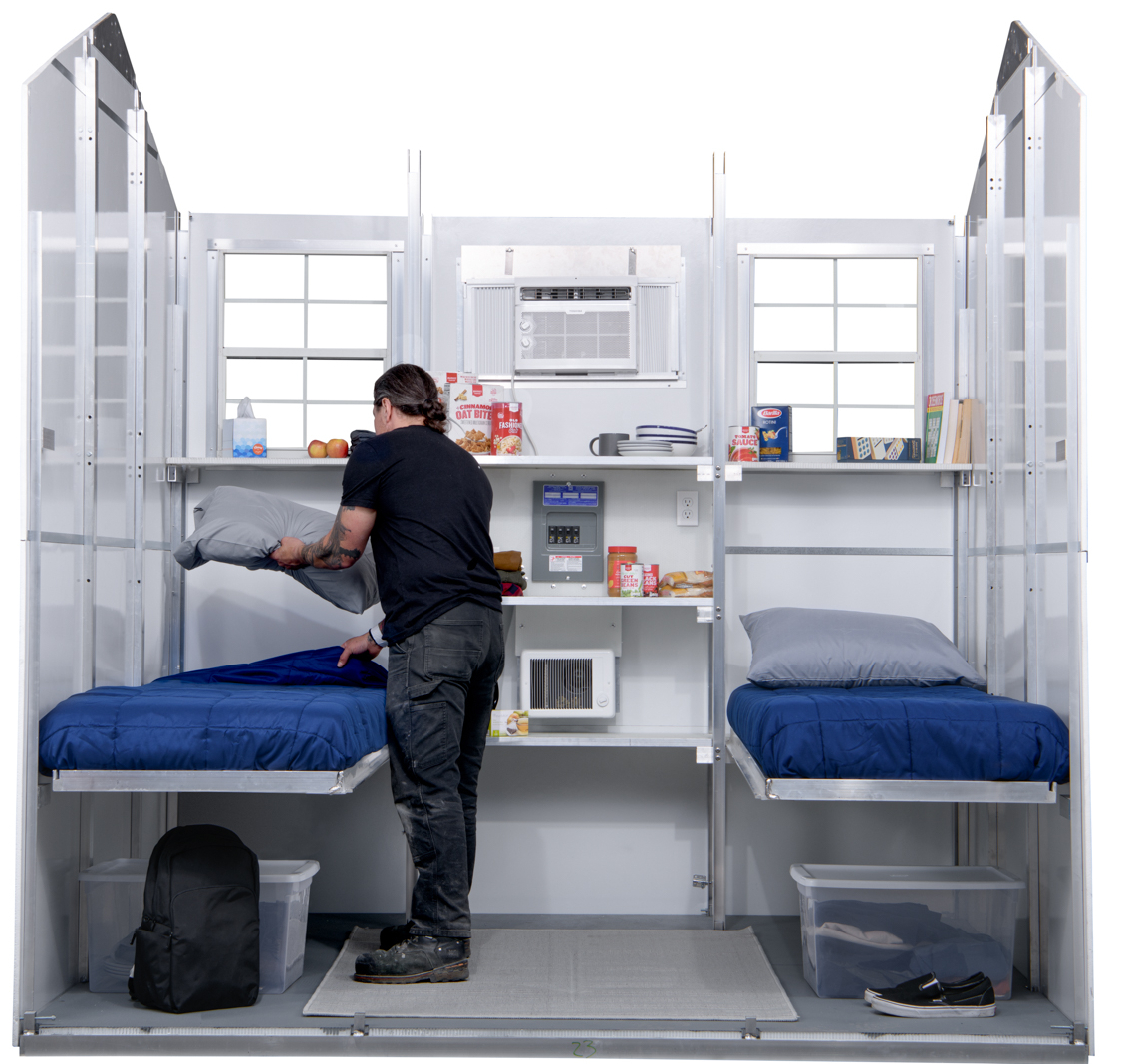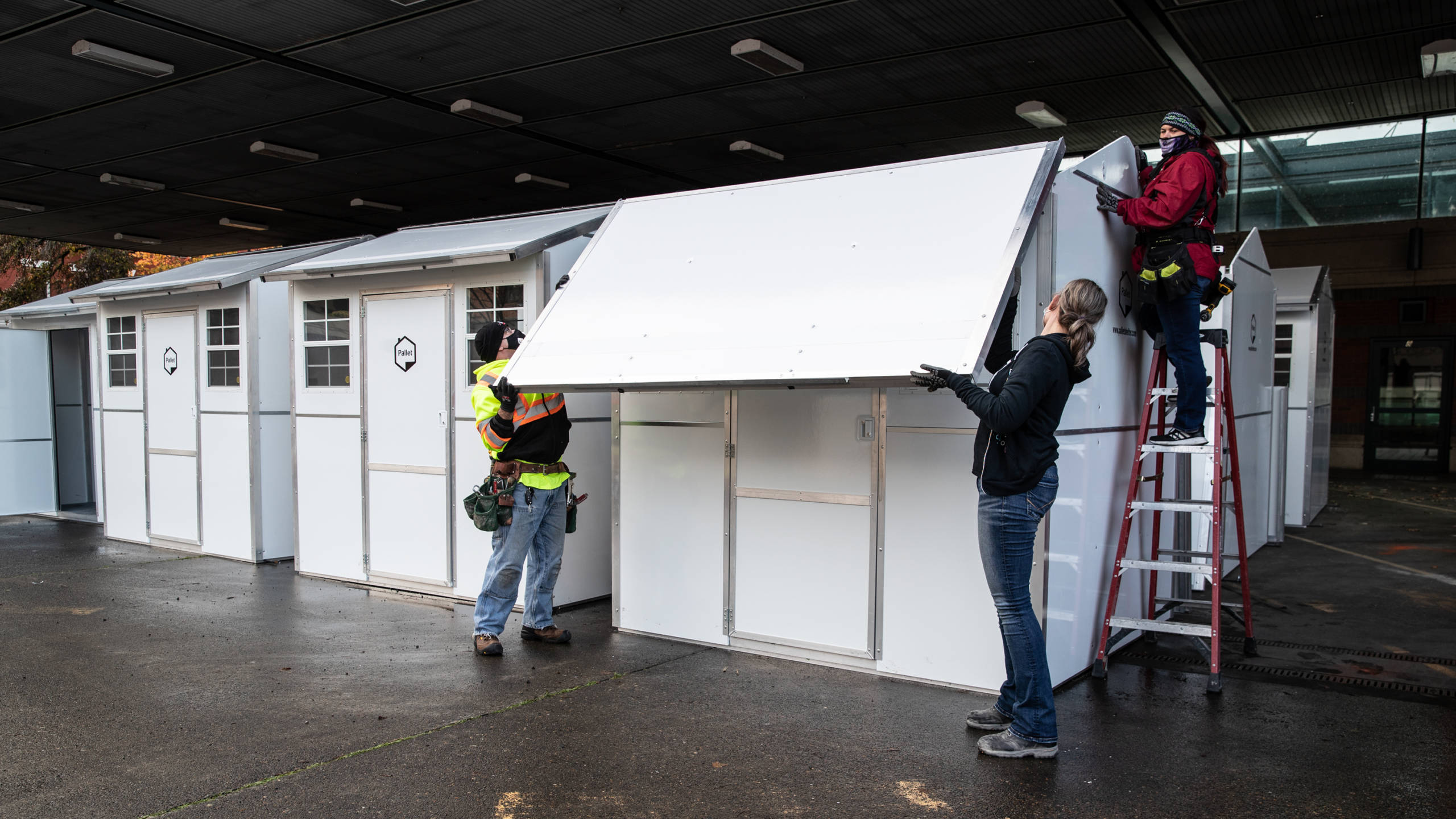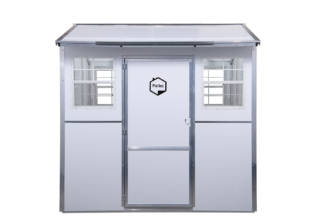
MANCHESTER, NH – A Manchester alderman is exploring the possibility of building a campus of between 40 and 60 small mobile domicile units that would be used by unsheltered homeless individuals as a temporary transitional form of housing. [See video below].
Alderman Pat Long said he’s been in talks with a company called Pallet to potentially supply the housing units, which would each have a fold-down bed, a storage locker, heat, air conditioning and a lockable door.
He said the estimated cost for 60 of the smallest units would be close to $500,000, at about $8,000 per unit, though he is still negotiating the price.
Pallet says they supply a 64-square-foot shelter and a 100-square-foot model. They take 30 minutes to set up, have a durable aluminum frame and insulated walls. Each cabin is said to have a lifespan over 10 years.

“They’re bigger than any tent I saw out there,” Long said.
Currently, the city has about 27 encampments, according to the latest count by the Homeless Outreach Collaboration teams. During the winter there have been a number of fires, some involving propane tanks, and at least one death.
The idea is the housing units will be safer, easy to maintain and provide people with a stepping stone to more permanent and stable housing.
Long said being able to lock belongings inside the unit will be an important factor, since he said many people claim to avoid shelters because they fear having their belongings stolen. It’s also helpful for anyone who needs a place to keep their things while they work their job.
“That’s been one of the biggest deterrents to going into New Horizons is ‘people steal my stuff,’” Long said.
The model would follow the “housing first” concept of putting a roof over people’s heads first and then working on additional supports to establish stability.
“The concept is you pick the most chronic homeless person and you put them into an apartment unit and you send services over there every day,” Long said.
“The first step for us is housing first and then figure everything else out from there,” said Bianka Beaudoin, CEO of the Manchester nonprofit The Way Home.
The Way Home provides supportive housing by sub-leasing apartments to families in need, and transitional housing through a seven-unit apartment building. The transitional housing program prioritizes families with a homeless child, especially if there is a compounding medical issue or they are fleeing domestic violence.

Over the past fiscal year, which concluded in June 2020, Beaudoin said they were able to serve about 1,300 individuals in 610 households, overall.

“We’re actually seeing an increase in services compared to last year,” Beaudoin said.
But the limited number of transitional housing units means they can only serve so many families at once.
“It can take some time before we can turn over an apartment and bring in a new family,” she said. “If we had more stock, we’d be able to help more households.”
Long said 60 cabins would not replace all of the city’s homeless camps (that would take closer to 200), but it would give more options than currently exist for the most chronically homeless people to find shelter and start on the road to sustainable housing.
“Once they can be quasi-independent we can get them into an apartment,” Long said.
A Pallet company spokesman said their longest-standing site is in Tacoma, Washington, which has been there for about 4.5 years. The operators there recently reported that 89 percent of those who utilized the Pallet shelters successfully transitioned into stable living environments, since the site first opened.
Ideally, Long said the cabin shelter program would have to be overseen by a local nonprofit. And he’s hoping the city will approve funding to cover part of it.
Beaudoin said she is open to bringing up the possibility of operating such a program or partnering with another nonprofit in the area to run it to the board of directors.
“As a general concept, I think it’s a great idea because we need to be creative, I think, as a community in order to get people off the streets and be safe,” Beaudoin said.
Long first proposed the idea back in February 2020, but he only had one other alderman, Daniel O’Neil, support the idea.
Beaudoin said the biggest challenge will be funding. In order for a nonprofit to take this on, there would need to be a “consistent and sustainable” source of funding, probably a combination of federal grants, city appropriations and private contributions.
Other potential challenges exist, such as expanding staff and NIMBYism (Not In My Back Yard), she said.
Long said he is still looking for a location for the shelters. One of the places he favors is the National Guard parking lot or building, but so far he said the state has rejected that proposal twice.









